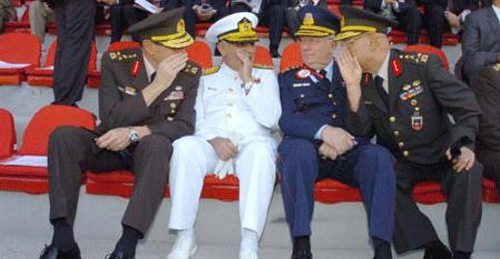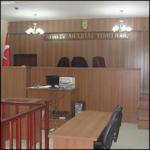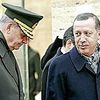On 9 July, a legal amendment relating to the military and civilian judiciary systems came into effect. The amendments to Law 5918 mean that civilians will be tried in civilian courts in all but situations of war or emergency rule, and that soldiers may also be tried in civilian courts in cases of organised drug production, trade or money laundering, formation of illegal organisations, and crimes against state security, constitutional order, national defence and espionage.
bianet spoke to retired military judge Ümit Kardaş, who pointed out that the amendment makes the trial of Chiefs of General Staff possible as well.
Prior to the change in law, Kardaş pointed out, Chiefs of General Staff could only be tried according to the military penal code, and only if they themselves ordered an investigation.
Military pushing for special status
When President Abdullah Gül ratified the amendment, he also took into account the objections of the General Staff and called for additional amendments to deal with the worries of the military.
According to the Milliyet newspaper, there is insistence that Chiefs of Staff and force commanders may only be tried in the Supreme Council (Yüce Divan), generals and admirals only in the Supreme Court of Appeals, and that Presidential or Prime Ministerial permission must be given for the prosecution of the Chief of General Staff, and that other soldiers may only be tried if their commanders allow it.
Kardaş says that the military is worried about losing the special status it has compared to other bureaucrats or politicians:
"What is the point of reintroducing these privileges, which violate the principle of equality? None of the crimes [listed above] are crimes related to their duty. Whether politician, bureaucrat or soldier, they must be tried in the same way that other citizens are tried. There is no need to have special court arrangements for public servants."
Principle of equality must be applied
In order for the principle of equality to hold true even further, Kardaş also supports the lifting of parliamentarian immunity for all but the speeches the MPs make, thus allowing for their prosecution in the case of criminal and other allegations.
Meanwhile, the main opposition Republican People's Party (CHP) has applied to the Constitutional Court to have the amendments annulled. Kardaş criticises this application, which is based on Article 145 of the Constitution, an article that offers the military courts great authority.
Kardaş argues that the CHP should rather demand the abolition of Article 145 and the lifting of parliamentarian immunity.
Amendment should have been more extensive
While the retired military judge finds the amendment positive, he says that because of the hurry with which it was conceived and passed, the amendment is incomplete:
"It only includes certain types of crimes. Such amendments must be made more holistically. There must be a definition of what is a military crime, the military supreme court of appeals and the military state council must be abolished, and the areas of authority of military courts must be clearly defined." (TK/AG)








